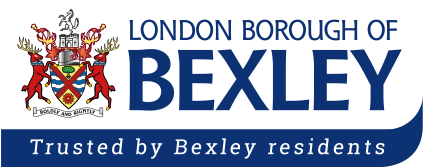How we work out what you can afford to pay
What we count as money coming in
We do include:
- pension income
- certain benefits
- other income from investments – but only after you’ve paid tax and National Insurance.
We don’t include:
- any wages you get from paid work and/or your partner’s income if you have one
What we count as savings
We won’t count any savings if you have £14,250 or less put-away. If you have more than £23,250 in savings, we’ll charge you for all of your care.
If you share your savings with a partner, we’ll assume you are entitled to half of anything in those accounts, unless you give us legal evidence that proves you don’t.
We’ll also ask you about any assets you’ve transferred in the last six months, and if we have evidence you’ve spent or given away money to get free care, we can charge you.
If you have more than £14,250 but less than £23,250, we add some money to your income to account for that.
For example:
- say you have £18,000 saved in total. Since we ignore the first £14,250, we’ll count that as £3,750 saved
- for each £250 (or part of £250) in your savings, we’ll count £1 a week. For £3,750, that’s £15 a week
- we’ll then add that £15 to your weekly income
What expenses we take into account
If you need care in your own home, we’ll look at your expenses. People receiving local authority-arranged care and support other than in a care home need to retain a certain level of income to cover their living costs. Under the Care Act 2014, charges must not reduce people’s income below a certain amount, but local authorities can allow people to keep more of their income if they wish. This is a weekly amount and is known as the Minimum Income Guarantee.
If we have taken into account any income related to a disability you may have, we will also make an additional standard allowance of £36.33 a week for extra expenses that you incur as a result of that disability (called Disability Related Expenditure). However, if you incur expenses greater than £36.33 a week, you will be able to request additional amounts to be taken into account. You will be asked to supply documentation to support these.
We also take account of some of your housing costs. These will include your rent or mortgage repayments and council tax. If you are one of a couple, we will assume that you are responsible for half of all joint expenses.
What happens after we’ve made our calculations
Finally, we’ll come up with a figure that’s the maximum amount you can afford to pay. It’s what’s leftover when we take your expenses away from the total income.
If that number is less than 50p, we won’t charge you. And if we think you’re not getting all the benefits you’re entitled to, we’ll refer you to the Department for Work and Pensions, who can help you make a claim.
If we pay part of all of your care, you can ask us to pay you instead of the care service. You’ll get a personal budget based on your needs and can spend this directly on the services you want.
We’ll review what we pay every year, but you need to let us know if anything changes
As the Department for Work and Pensions increases payments every April, we’ll assume your income has gone up in line with that unless you tell us otherwise.
If you’re earning, saving or spending more or less than before or if your household changes in any way (for example if you split from your partner), you need to let us know.
You can call 0208 068 7640 or email bexley.finance.assessments@capita.co.uk

